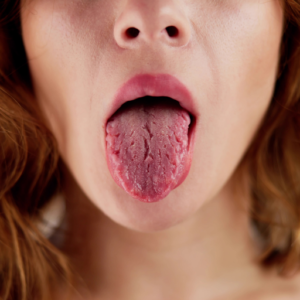What Are the Best Ways to Whiten Your Teeth?
Achieving a brighter smile can boost your confidence and enhance your appearance. There are various ways to whiten your teeth, ranging from professional treatments to at-home remedies. Understanding the most effective methods and products can help you achieve the best results safely.
KEY POINTS
Professional teeth whitening treatments, such as in-office bleaching, deliver the fastest and most effective results, lightening teeth by several shades in a single session.
At-home options like whitening strips, LED whitening kits, and custom trays with dentist-recommended gels provide convenient and gradual improvements over a few weeks.
Natural remedies, such as brushing with a baking soda and hydrogen peroxide paste or using coconut oil for oil pulling, can gently whiten teeth while promoting healthy gums.
Maintaining white teeth involves avoiding staining foods and drinks like coffee and red wine, practicing good oral hygiene, and brushing twice daily with whitening toothpaste.

Pop in your email below, and we’ll zip it straight to your inbox so you never lose it!
Which Tooth Whitening Methods Are Most Effective?
Professional treatments, such as in-office whitening by a dentist, are often the most effective. These methods use high-concentration bleaching agents and advanced technology to remove stains and lighten teeth several shades in just one session. At-home whitening kits with custom trays and dentist-recommended gels are also effective, offering noticeable results within a few weeks.
How to Choose the Best Teeth Whitening Products?
When selecting whitening products, consider the following:
- Whitening Strips: Convenient and easy to use, strips are coated with a peroxide-based gel and can deliver good results within days.
- Whitening Toothpaste: While not as powerful as other methods, these are great for maintaining whitened teeth and removing surface stains.
- LED Whitening Kits: Combining whitening gel with LED light, these kits accelerate the whitening process and are popular for at-home use.
Always look for products approved by dental associations to ensure safety and effectiveness.
What Are the Best Natural Ways to Whiten Teeth?
For those seeking natural methods, the following can help remove stains and improve the appearance of teeth:
•Baking Soda and Hydrogen Peroxide: A mixture of these two can act as a natural whitening paste. Use sparingly to avoid enamel damage.
•Oil Pulling: Swishing coconut oil in your mouth for a few minutes daily may reduce plaque and stains.
•Fruits like Strawberries and Pineapple: These contain natural enzymes that may help whiten teeth gently.
By exploring these options and choosing the method that suits your needs and lifestyle, you can achieve a dazzling smile safely and effectively. Always consult with your dentist before starting any whitening regimen to ensure the health of your teeth and gums.
Can You Whiten Teeth in One Day?
Achieving noticeably whiter teeth in just one day is possible, but it depends on the method you choose. Professional in-office whitening treatments are the most effective for rapid results. Dentists use high-concentration bleaching agents combined with advanced light or laser technology to whiten teeth by several shades in a single session.
At-home options, like whitening strips or LED kits, can also show minor improvements within a day, but they generally require consistent use for significant results. For a natural quick fix, brushing with a baking soda paste may help remove surface stains, but it won’t produce dramatic whitening.
For best results, consult your dentist about professional treatments or advanced products specifically designed for same-day whitening.
How to Whiten Your Teeth at Home?
What Home Remedies Can Help Whiten Teeth?
To whiten your teeth naturally, you can brush with baking soda. Simply mix one tablespoon of baking soda with water and brush their teeth gently. This method has teeth whitening properties that can help remove stains from teeth and make your teeth significantly whiter.
Another effective way to whiten the teeth is to use baking soda alongside coconut oil. Swishing coconut oil can help keep your teeth healthy and whiten teeth in a day, promoting healthy gums. However, be cautious, as excessive use may damage your teeth.
For those seeking a whiter smile quickly, combining these remedies can help get white teeth in one treatment. While achieving white teeth in one day is challenging, consistent use can whiten your teeth over time, enhancing the surface of the teeth and reducing stains.
How to Use Coconut Oil for Natural Teeth Whitening?
To naturally whiten your teeth, consider using coconut oil for teeth. This natural teeth whitening agent has natural teeth whitening properties that can help remove stains from your teeth and make your teeth look yellow shine. Gently brush your teeth with coconut oil as a teeth whitening paste, protecting your tooth enamel.
For best results, brush your teeth using regular toothpaste after oil pulling. This teeth whitening procedure not only helps naturally whiten your teeth but also keeps your gums healthy. If you want whiter teeth, consider incorporating coconut oil into your daily routine to keep healthy gums.
Using coconut oil is a safe alternative to chemical teeth whitening methods. It’s a great way to make your teeth brighter while avoiding harsh chemicals that can stain the teeth. Try it daily and experience teeth whitening uses that protect your teeth while delivering stunning results!
Are Whitening Toothpaste Effective for Home Use?
Whitening toothpaste can be an inexpensive way to whiten your teeth naturally at home, especially when combined with other methods. For example, mixing one teaspoon of baking soda with hydrogen peroxide can help to whiten teeth significantly. Brushing your teeth regularly can remove discoloration on your teeth and keep your gums healthy.
To enhance the effect, consider adding crushed charcoal tablet into your paste to brush your teeth. This can whiten teeth better while ensuring that you do not make your teeth yellowish. Regular contact with these ingredients can lead to teeth pearly white results, while protecting the enamel of your teeth.
While whitening toothpaste may able to whiten your teeth to an extent, it’s important to maintain a routine that includes proper brushing to keep plaque from your teeth. Using these methods daily can visibly make your teeth whiter and promote healthy gums.
What Are the Risks of Teeth Whitening?
Teeth whitening can enhance your smile, but it comes with certain risks. Using a teeth whitener that contains hydrogen peroxide can whiten teeth and make them appear brighter; however, improper use may lead to sensitivity or gum irritation. It’s crucial to brush the teeth regularly and maintain healthy gums to minimize these issues. Some people opt to crush one charcoal tablet and mix it with hydrogen peroxide for a DIY approach, but contact with your teeth should be limited to avoid damage.
Additionally, creating an essential oil whitening mix can be tempting, yet caution is advised. Always consult a professional before trying new methods to ensure safety and effectiveness. Regular check-ups can help monitor any changes in your dental health, allowing you to enjoy a brighter smile while keeping risks at bay.
How to Maintain White Teeth After Whitening?
What Are the Best Practices to Keep Teeth White?
To achieve and maintain a bright smile, following best practices is essential. Consider professional teeth whitening treatments for optimal results, as they can effectively remove stubborn stains. Additionally, you can create a homemade solution by using hydrogen peroxide with one part water to gently brush onto your teeth. However, be cautious of tooth sensitivity that may arise from frequent use. It’s also vital to brush twice a day and keep healthy gums by flossing regularly, as overall dental health contributes significantly to a whiter appearance.
How Often Should You Brush Your Teeth for Best Results?
Brushing your teeth at least twice a day is essential for optimal oral health. Morning and night routines help remove plaque and food particles.
Additionally, consider brushing after meals when possible, especially sugary or acidic foods. This practice can further enhance your oral hygiene and prevent cavities.
Don’t forget to replace your toothbrush every three to four months for best results!
What Foods and Drinks to Avoid for Whiter Teeth?
To achieve whiter teeth, it’s essential to avoid certain foods and drinks. Stay clear of coffee and tea, which can stain enamel over time. Additionally, sugary snacks like candy and chocolate promote plaque buildup, leading to discoloration.
Furthermore, red wine and soda are notorious for their staining properties. Acidic beverages can erode enamel, making teeth more susceptible to stains. Opting for water or milk can help maintain a brighter smile.











